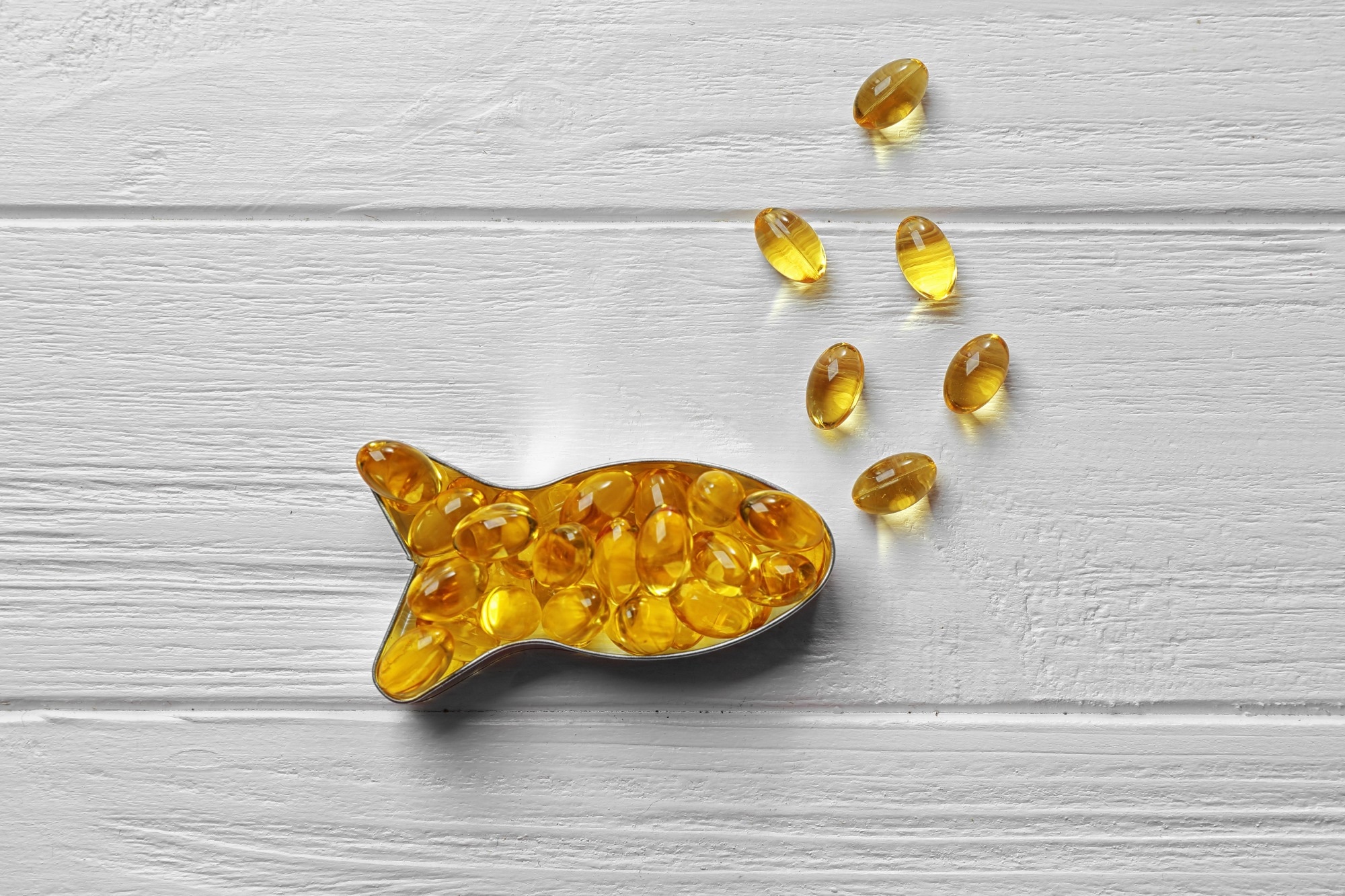Consuming omega-3 fatty acids during pregnancy, especially long-chain acids such as docosahexaenoic acid (DHA), is crucial for child health and neurodevelopment. Fish and seafood are the principal sources of these fatty acids, with current standards recommending 8.0 to 12 ounces of fish weekly for 200 mg of DHA daily. However, studies show that few expecting women consume omega-3 polyunsaturated fatty acids (PUFAs) and fish in adequate amounts. Since 2001, federal warnings have caused a decrease in prenatal omega-3 fatty acid and fish intake. Health experts opine that eating fish is the best method to satisfy these guidelines.
 Study: Demographic and health characteristics associated with fish and n-3 fatty acid supplement intake during pregnancy: results from pregnancy cohorts in the ECHO program. Image Credit: Africa Studio / Shutterstock
Study: Demographic and health characteristics associated with fish and n-3 fatty acid supplement intake during pregnancy: results from pregnancy cohorts in the ECHO program. Image Credit: Africa Studio / Shutterstock
About the study
In the present pooled pregnancy cohort study, researchers examined the National Institutes of Health (NIH) Environmental Influences on Child Health Outcomes (ECHO) data to determine whether fish consumption has decreased over the last twenty years and whether supplement usage was more prevalent among non-fish consumers.
The ECHO platform collected data on 52,000 single-child gestations from 69 Puerto Rico and the United States groups In October 2022. The team included ECHO cohorts with births spanning 1999 to 2020, comprising 10,800 pregnant women from 23 groups with food frequency data on fish-eating and 12,646 from 35 cohorts with supplement usage information. They excluded pregnant women with incomplete information on fish consumption or supplement usage.
The researchers conducted keyword searches and form reviews to identify food frequency questionnaires (FFQs) that measured fish consumption and questions that examined supplement intake. They calculated fish consumption by converting questionnaire components and adding them to the total weekly consumption.
Subsequently, the team classified fish intake as follows: (i) <1.0 times monthly; (ii) once monthly to <1.0 times per week; (iii) once or twice weekly; and (iv) >2.0 times weekly. They also developed a binary characteristic with the options of zero to <1.0 times monthly ("never") or more ("ever"). Likewise, they used binary variables to assess omega-3 PUFA supplementation.
The researchers collected data on maternal self-reported sociodemographic variables such as age, education, ethnicity, race, nicotine or tobacco usage during pregnancy, and prenatal body mass index (BMI). They used multiple imputations to compensate for missing information on the variables of interest. They then used log-binomial regressions to determine the relative risk (RR) values, controlling for demographics, smoking habits, and prenatal BMI. They performed random effects modeling for each cohort and performed a leave-one-out analysis, accounting for the nested structure of pooled information.
Results
Among the participants, 25% stated they ate fish never or only once a month, 40% less than once a week, 22% once or twice weekly, and 13% more than twice per week. The RR values of ever (versus never) eating fish were higher in older individuals (1.1 for 35 to 40 versus less than 29 years), non-Hispanic Black, non-Hispanic Asian, and Hispanic, and those who used tobacco (1.0).
The RR decreased in overweight individuals compared to those who were healthy (1.0). Only 16% reported using omega-3 supplements, which were more prevalent among individuals who were older and more educated, had a lower BMI, and ate fish (RR 1.5 for twice-weekly vs. never). Individuals aged >40 years had a two-fold higher likelihood to consume supplements compared to those aged below 29 years (RR 2.0), and graduates showed a higher likelihood of supplement use compared to individuals who did not attend high school (RR 1.7). After controlling for demographics and the number of fish questions listed in the various dietary surveys, the researchers found no variations in fish consumption by year of delivery.
Supplement usage was lower by Hispanic (RR 0.7) and non-Hispanic Black individuals (RR 0.6) than non-Hispanic individuals of the white race, tobacco consumers (RR 0.8), and individuals with higher BMI values (RR 0.8, for body mass index ≥30 versus below 25 kg m-2). Contrary to the suggestion that individuals not eating fish must take omega-3 supplementation, those who ate more fish used the most supplements.
Conclusions
The study found that one-quarter of individuals seldom or never ate fish while pregnant, and a mere 16% took omega-3 supplements. Fish consumption was associated with health factors and demographic variables, with higher intake among older individuals with higher educational attainment and income, those with ethnic or racial identities apart from non-Hispanic whites, and those consuming tobacco or nicotine products.
Supplementation was more closely associated with demographic variables, with older individuals, those with higher educational qualifications and wealth, and non-Hispanic Asian or white individuals being more likely to consume them. Supplement usage was less prevalent among individuals who were at a higher risk of poor pregnancy outcomes due to nicotine or tobacco use and elevated BMI. The findings are relevant, given that the World Health Organization and the United States National Academies are now reviewing research on fish intake during pregnancy.